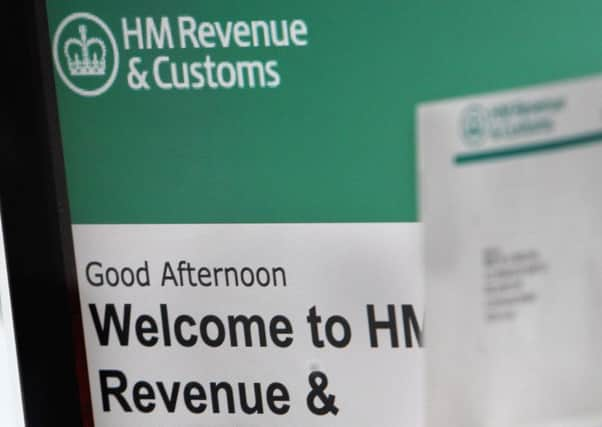Taxman’s claim against employment companies at £150m


Documents filed by liquidators have shown the claim by HM Revenue & Customs (HMRC) against just one of David Allen’s companies now stands at £62m.
Claire Middlebrook, of business recovery firm Middlebrooks, who is handling the affairs of a number of Allen’s Edinburgh-based companies, said the total being claimed by HMRC had now reached an estimated £150m, up from around £126m when the firms went under in 2013.
Advertisement
Hide AdAdvertisement
Hide AdAlthough HMRC does not comment on individual cases, it is understood the huge claim relates to tax, National Insurance contributions and penalties it believes are due on the earnings of workers handled by the firms – Employ-E, Legatis Group and Work Legal-E – but which were not paid because of the way expenses were accounted for.
According to the latest liquidator’s update report on Employ-E, the tax issue is now “the subject of a legal debate to which the company is no longer a party”.
Although HMRC’s claim runs into tens of millions, Employ-E had little in the way of assets when it collapsed other than around £380,000 in a bank account.
In total some 60,000 workers – mostly in manual and low-paid roles – were on the books across the three George Street-based companies, which provided services included outsourced payroll schemes for recruitment agencies and temporary workers.
It is thought unlikely that any action would be taken against those individuals to try to reclaim any underpaid tax.
Last month Allen, 62, who lived in Biggar but is now based in Dubai, agreed to a voluntary undertaking not to act as a director for 11 years after an Insolvency Service investigation found that he breached his position of trust by knowingly instructing the submission of a VAT return which was under-declared by £5m.
That return was in relation to Work Legal-E, which went into liquidation in 2013 with debts of more than £43m owing to HMRC.
The investigation also found that, during 2011, Allen received three payments from the company totalling £1.65m for which there was “no contractual evidence to support his entitlement to the payments made”.
Advertisement
Hide AdAdvertisement
Hide AdMiddlebrook said that the administration work on the companies was likely to continue for at least 18 months.
“The huge numbers of workers involved means we are still dealing with inquiries on an almost daily basis,” she said.
In a statement issued by the Insolvency Service about Allen’s undertaking not to act as a director last month, it said that during a meeting with HMRC in 2013 Allen advised he had opted to under-declare the liability as he considered the company was “tight on money”.
Commenting on the disqualification, Robert Clarke, of the service’s investigation team, said:
“This ban should serve as a warning to other directors tempted to help themselves first; you have a duty to your creditors and if you neglect this duty you could be investigated by the Insolvency Service and removed from the business environment.”
According to its last filed accounts, for the 13 months to 31 December 2010, Work Legal-E had a turnover of £108.8m but lost £16m.
In the director’s report Allen blamed the loss on “substantial fraudulent transactions carried out by an employee of and external consultants to the company”.